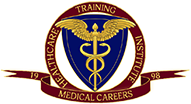Interested in how to become a CNA? If you have a passion for caring for people of all ages, then you could thrive in the health care industry as a Certified Nurse Aide (CNA).
Certified Nurse Aide is an exciting career choice as CNA jobs have a great employment outlook for years to come. According to the BLS (Bureau of Labor Statistics), CNA employment is expected to increase by 20% in the year 2020. Future CNAs will be able to make the most of these many job openings.

Q: What is a CNA?
A CNA is a healthcare professional who provides health care services to facility residents and patients. CNA’s are also referred to as “orderlies” or “nursing aides.”
Q: What does a CNA do?
A: CNAs provide basic health care services to clients. Their primary responsibilities include:
- Assisting patients eat, bathe, and perform other activities of daily living.
- Applying bandages if directed by nurse or physician.
- Relaying patient’s concerns to nurse or physician who is overseeing patient.
- Documenting all events and other patient activities.
- Transitioning patients from bed to wheelchair, and vice-versa.
- Taking vital signs of patients.
How to become a CNA?
Step #1: Enroll in a qualified Certified Nurse Aide training program.
In order to become a CNA, you must first enroll in a career school, college, or other program that offers a Certificate Program in Nursing Aide. Ensure that the school you attend is qualified. For example, The Healthcare Training Institute is approved by The Department of Health and Senior Services of New Jersey.
To be admitted to this training program, you must present either of the following certifications to the Admissions office:
- High school diploma
- GED certification
Step #2: You will then take a basic patient care course.
This curriculum will provide you with the basic nurse aide knowledge and skills necessary to care for residents of long-term care facilities.
The course must comply with Federal Regulations requirements: a total of 16 hours of training in the areas of communication and interpersonal skills, infection control, promoting residents’ independence, and respecting residents’ rights. Safety/emergency procedures, including the Heimlich Maneuver, are also taught to each student prior to any direct contact with a resident.
The best CNAs have a natural desire to help people as well as highly developed communication and patient care skills. They excel in assisting patients with daily living activities and making those in their care feel safe and comfortable during their time at a facility. Good CNAs understand their patients’ needs thoroughly, including allergies, dietary restrictions, and personal preferences.
CNA’s must possess other valuable traits in order to succeed in the demanding world of healthcare as well. Compassion is invaluable as the majority of CNAs work with disabled or elderly individuals. To carry out duties effectively, CNA caregivers must possess empathy and compassion towards their clients as they conduct responsibilities of bathing, feeding, and assisting patients with day-to-day tasks. As CNA’s are primary caregivers in healthcare facilities and interact with elderly patients most frequently, CNA’s must also possess shrewd observational skills so they are able to accurately relay information to nurses and doctors about a patient’s health changes. They’re responsible for listening to patients and conveying important information about their needs and feelings.
Step #3: A Clinical Externship in a Licensed Long-Term Care Facility
While completing your patient care curriculum, you will also begin your externship, training in a real-world setting. During your externship you will interact with real patients and medical professionals in an actual medical office environment. Your clinical externship will consist of 40 hours of clinical instruction in a New Jersey licensed long-term care facility.
While receiving “hands-on” practice, CNA’s should strive to contribute to the highest biological, psychological, social, cultural, spiritual, and intellectual functions of the resident.
After successful completion of a New Jersey Department of Healthcare & Senior Services-approved 90 hour course, you will be able to take the New Jersey State Department of Health and Senior Services Nurse Aide examination.
Step #4: Pass Your State Exam
Once you have completed your CNA training and externship, you must pass a state-specific examination to become a fully certified CNA.
This test will consist of 55 to 70 multiple choice questions. You must demonstrate you have mastered all the knowledge and hands-on elements required to become a certified nursing aide.
Congratulations, you’re a CNA!
CNA Employment Opportunities
CNA jobs have a fantastic employment outlook for years to come. The Bureau of Labor Statistics (BLS) estimates that CNA jobs are expected to increase by a significant 21% by the year 2022, a much higher average than the rest of the industry (%11). Future CNAs will be able to take advantage of the job openings in years to come and job prospects are looking very bright.
Where Can CNA’s Find Work?
The Bureau of Labor Statistics states that the majority of CNA’s are employed in nursing homes and residential care facilities. An estimated 55% of these institutions hire nursing aides to provide care for patients.
CNA’s can also work at local, private, and state hospitals, and home health care companies. They can be found in almost every health care field, serving in locations such as long-term care facilities, rehabilitation centers, hospitals and hospices.
What is the Salary of a CNA?
According to the BLS, Certified Nurse Aides make on average $24,400 per year. Their salaries range from $ $18,000 to $34,000.
Questions? To learn more about Healthcare Training Institute’s Certified Nurse Aide program, give us a call at 908-851-7711.
